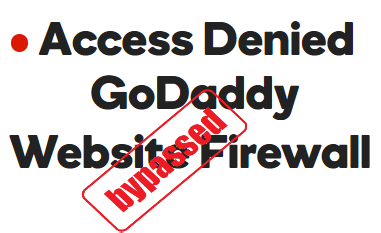| Service | Residential | Cost/month | Traffic/month | $ per GB | Rotating | IP whitelisting | Performance and more | Notes |
|---|---|---|---|---|---|---|---|---|
| MarsProxies | N/A | N/A | 3.5 | yes | yes | 500K+ IPs, 190+ locations Test results | SOCKS5 supported Proxy grey zone restrictions are applied. |
|
| Oxylabs.io | N/A | 25 GB | 9 - 12 "pay-as-you-go" - 15 | yes | yes | 100M+ IPs, 192 countries - 30K requests - 1.3 GB of data - 5K pages crawled | Not allowing to scrape restricted targets, incl. Linkedin. |
|
| 2captcha.com | yes | N/A | N/A | 3 - 6 | yes | no | 90M+ IPs, 220+ countries | |
| Smartproxy | Link to the price page | N/A | 5.2 - 7 "pay-as-you-go" - 8.5 | yes | yes | 65M+ IPs, 195+ countries | Free Trial Not allowing to scrape some of grey zone targets, incl. Linkedin. |
|
| Infatica.io | N/A | N/A | 3 - 6.5 "pay-as-you-go" - 8 | yes | yes | Over 95% success *Bans from Cloudflare are also few, less than 5%. | Black list of sites —> proxies do not work with those.
|
|
| Mango Proxy | N/A | 1-50 GB | 3-8 "pay-as-you-go" - 8 "pay-as-you-go" - 8 | yes | yes | 90M+ IPs, 240+ countries |  |
|
| IPRoyal | N/A | N/A | $4.55 | yes | yes | 32M+ IPs, 195 countries | Not allowing to scrape some of grey zone targets, incl. Facebook. List of bloked sites. | |
| Geonode.com | $50 | 100 GB | 0.5 "pay-as-you-go" - 5 | yes | yes | • 3'000 requests done with 5 threads for 1/2 hour • 95% successful requests | - easy to configure - lowest price in terms of subscription - simple and powerful, no hidden tricks - good technical support |
|
| Rainproxy.io | yes | $ 4 | from 1 GB | 4 | yes | |||
| BrightData | yes | 15 | ||||||
| ScrapeOps Proxy Aggregator | yes | API Credits per month | N/A | N/A | yes | Allows multithreading, the service provides browsers at its servers. It allows to run N [cloud] browsers from a local machine. The number of threads depends on the subscription: min 5 threads. | The All-In-One Proxy API that allows to use over 20+ proxy providers from a single API | |
| Lunaproxy.com | yes | from $15 | x Gb per 90 days | 0.85 - 5 | Each plan allows certain traffic amount for 90 days limit. | |||
| LiveProxies.io | yes | from $45 | 4-50 GB | 5 - 12 | yes | yes | Private IP allocation Tailored large plans for enterprises 10M IPs - 50 countries | Eg. 200 IPs with 4 GB for $70.00, for 30 days limit. |
| Charity Engine -docs | yes | - | - | starting from 3.6 Additionally: CPU computing - from $0.01 per avg CPU core-hour - from $0.10 per GPU-hour - source. | failed to connect so far | |||
| proxy-sale.com | yes | from $17 | N/A | 3 - 6 "pay-as-you-go" - 7 | yes | yes | 10M+ IPs, 210+ countries | 30 days limit for a single proxy batch |
| Tabproxy.com | yes | from $15 | N/A | 0.8 - 3 (lowest price is for a chunk of 1000 GB) | yes | yes | 200M+ IPs, 195 countries | 30-180 days limit for a single proxy batch (eg. 5 GB) |
| proxy-seller.com | yes | N/A | N/A | 4.5 - 6 "pay-as-you-go" - 7 | yes | yes | 15M+ IPs, 220 countries | - Generation up to 1000 proxy ports in each proxy list - HTTP / Socks5 support - One will be able to generate an infinite number of proxies by assigning unique parameters to each list |
| SwiftProxy.com | yes | from $15 | from 5 GB | 1.8-3 0.70 - Enterprise plan | yes | yes | 70M+ ethically sourced IPs 220+ countries | 500 MB residential traffic for free on sign up. |
Additional
Another proxy comparison in here.
Undetectable’s proxy partners.



